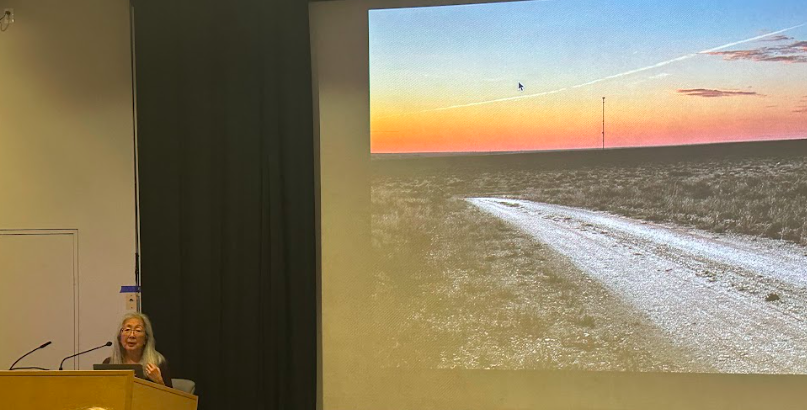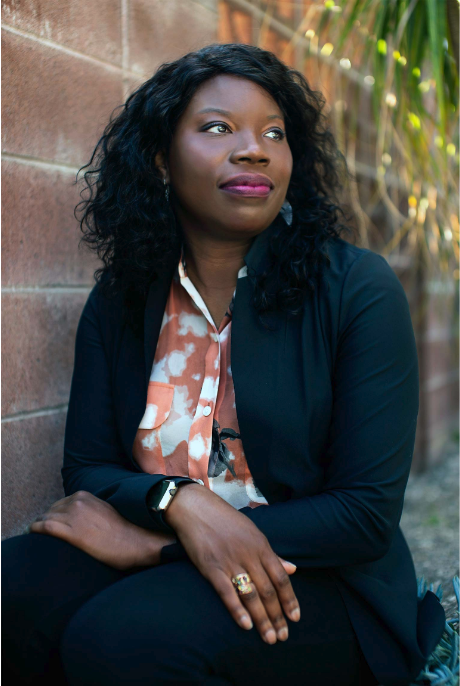On June 11, Tiff Fehr and the rest of her team at the New York Times won a Pulitzer Prize for their coverage of the pandemic, but when she graduated from Wellesley in 2000, she never anticipated working in journalism. One of the first media arts and sciences majors at Wellesley and a studio art double major, she was focused on computer science. Upon graduation, Fehr moved back to her hometown of Seattle to work in technology.
After years in the industry, she grew tired of its blatant misogyny and switched fields. As a Wellesley graduate, she had “no patience” for dealing with the tech boys’ club culture.
“I was just tired of fighting those battles … and there were opportunities for tech workers in journalism that didn’t exist as clearly when I got out of school,” she said. “It was nice to go to an office space where there were women at all, doing anything.”
This led her to her current position as a staff engineer for the Interactive News team at The Times, where she has worked for almost 10 years. The team, which deals with data and programming, helps create graphs and maps that track COVID-19 cases, the project for which they won the Pulitzer.
“We really understand the terabytes of data we get … and can analyze that correctly to say, ‘Yes, this is the methodology we can use to identify these trends,’” Fehr said.
Although she did not originally plan to work for a newspaper, she was part of The Wellesley News as an undergraduate. She was mostly involved in graphic design, the field she originally thought she wanted to go into after college, although she also wrote some articles. Similarly, at The Times she has occasionally written pieces that have accompanied the data she has worked on.
“I definitely valued journalism from my experience with The News, which was the first place … I was exposed to most of its concepts,” she said.
Fehr is much happier with the gender dynamics at The Times, but she recognizes that the journalism field still has much more work to do in terms of equality of various kinds. As an engineer surrounded by writers, she has found that the newsroom has more women leaders in general than her data-driven team. Additionally, engineers in positions such as hers make much less than their counterparts doing the same work in more male-dominated startups and tech companies.
“I don’t think The Times or journalism can really pat themselves on the back about the representation of women on the technology side,” Fehr said. “It’s still a battle.”
Fehr also recognizes her privilege in coming from a wealthy background. While switching to a less financially lucrative career for the sake of happiness was risky, she had her family to fall back on if it did not work out.
“Choosing to be in technology in news is kind of saying, ‘I’m not going to be paid a Google-level salary for the work I’m doing even if the work could be similar,’” Fehr said. “Being able to decide that’s okay is either, you’re okay with the mission behind it because you really value journalism … or you are from a place of financial security where that is worthwhile. That is another bridge that the technology industry needs to understand, is shaping other industries because of competitive pay.”
Fehr has been working on the COVID tracking project since March 2020, virtually the start of the pandemic, and her work has gotten easier as the federal government has started releasing more data and vaccines have become available. After winning her Pulitzer, Fehr continues to work on the project with a smaller team. In the future, she hopes to potentially start a new project collecting data on how mask-wearing affects the yearly flu season.
“COVID will still be around even in low-level exposure,” she said. “Could be we end up morphing to track [the flu] and COVID is just a subtype of the flu numbers or something … We need to get to this winter before we really find out what the cycle is going forward.”
Although Fehr feels honored to have won a Pulitzer, she noted that prior to the event, she hoped that all the finalists would tie. Fehr stressed the importance of every publication’s data contributions during the pandemic.
“I was really hoping [the Pulitzer board] would come up with, ‘Everyone did a public good because the government did such a poor job [tracking and reporting COVID numbers] … Journalism as a whole did a great job covering the government’s ass on this one,’” Fehr said.








